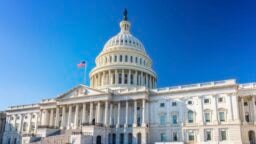Concert promoter, venue owner, and Ticketmaster parent Live Nation has had a wild few days on the stock market.
The company’s share price jumped in after-hours trading Thursday (July 27) after it released an impressive Q2 earnings report, showing revenue up 27% YoY to USD $5.6 billion, adjusted operating income up 23% YoY to $590 million, and earnings per share jumping a solid 55%, to $1.02 per share.
Revenues from its concerts division came in at $4.63 billion, up up 28% YoY on a constant currency basis. Ticketing (i.e. Ticketmaster) brought in $709.3 million, up 23% YoY, while sponsorships and advertising brought in $302.9 million, up 13% YoY.

But LN’s stock gave up all these price gains, and then some, on Friday after a report at Politico stated that the US Justice Department could file a new antitrust lawsuit against the company as soon as this fall.
Live Nation’s share price closed Friday down nearly 8% for the day, closing at $89.88.
It was a disappointing slide for a company that had just reported its strongest second-quarter earnings ever.
It’s been known since last November that the DoJ had Live Nation in its crosshairs, but the new report from Politico, citing three unnamed sources, put a timeline on potential legal action against the company for the first time.
Contrary to earlier rumors, the DoJ investigation isn’t focused on last fall’s Taylor Swift ticket fiasco – in which Ticketmaster had to suspend sales of tickets to Swift’s The Eras Tour to deal with a bot attack – but rather on the claim that “the entertainment giant is abusing its power over the live music industry,” Politico reports.
That’s an allegation that Live Nation President and CEO Michael Rapino has repeatedly denied, and in news reports Friday, other Live Nation execs also cast doubt on the claim that a DoJ lawsuit is pending this fall.
“We’re in regular contact with the DoJ and they haven’t told us they think we’re doing anything illegal or asked us to address any concerns,” Live Nation’s Executive VP for Corporate and Regulatory Affairs, Dan Wall, told Billboard.
“It would be highly irregular for the DoJ to file without that notice and a lot of dialogue afterwards. However, if they do file we are prepared to defend ourselves.”
Live Nation’s stellar Q2 earnings report certainly points towards a company enjoying major commercial prosperity from live music’s growth.
Yet it’s clear that the company’s stellar earnings are coming not just from an increase in revenue per customer – though that is happening – but from real and soaring demand from live music fans. Live Nation shows sold 117 million tickets in H1 2023, a 20% YoY jump, while ticket sales through Ticketmaster jumped 22% YoY in the first half, to 151 million.
That strong demand had some observers – including some analysts on the company’s Q2 earnings call last week – wondering whether the numbers are still a reflection of a post-COVID rebound.
After all, in the first half of last year, many places in the world still had closed venues, and some music fans were still hesitant to attend crowded music events.
But Rapino poured cold water on that explanation during the earnings call, arguing – as he has done previously – that the music industry is undergoing a sea change, with developing markets becoming increasingly important, and consumers focusing more on experiences, like concerts, over product purchases.
“We don’t think this is just any COVID catch-up. We think that this is going to be the time when live [music] on a global basis is going to have an incredible growth run for years to come.”
Michael Rapino, Live Nation
“We believe for the next multiple years that this industry in general is going to have a growth surge on a global basis,” Rapino said, in response to a question from LightShed Partners analyst Brandon Ross.
“We don’t think this is just any COVID catch-up. We think that this is going to be the time when live [music] on a global basis is going to have an incredible growth run for years to come. We obviously benefit from that, any time the market gets to this level of growth, because we’ll capture that growth also.”
Rapino explained: “We’re seeing top to bottom [an] incredible pipe of artists that will be filling… the different venue types and markets across the world. So, we think we’re headed to a very, very strong 2024, 2025… The consumer demand is growing, and our ongoing bolt-on acquisitions, venues, new market entries, compounded on top of our organic growth, is going to give us this continual one-two punch of growth for the next multiple years.”
Here are four other things we learned from Live Nation’s Q2 2023 earnings call. (Note: The call took place before Politico’s report on the DoJ investigation came out.)
1) Live Nation sees no sign of a consumer spending slowdown
With interest rates on the rise and elevated inflation persisting in many markets, reports are accumulating that consumers are increasingly feeling the financial squeeze – something that could have a negative impact on Live Nation’s ability to grow its top and bottom lines in the coming quarters.
Yet Live Nation’s leadership team is seeing no sign of a slowdown – either in its earnings or in its outlook for coming quarters.
“The people that you might say are going to be the most price-conscious are continuing to spend strongly,” President and Chief Financial Officer Joe Berchtold told analysts on the call.
“Per caps [are] growing even as we’re continuing to increase our number of fans per show, which, again, means that even the marginal fan is continuing to spend a lot when they show up. So we’re not seeing any indicators that would give us any concern [about] any slowdowns.”
Asked by analyst Stephen Laszczyk of Goldman Sachs about the specific impact of the resumption of student loan payments in the US this fall, Berchtold responded: “Our analysis shows that the tailwind impact from getting experiences back as a portion of discretionary spend [following the pandemic] is about 10 times the impact of any potential headwind coming from the student loan payments needing to get made. So we think that the tailwinds … far outweigh any headwinds.”
2) Live Nation is in a technological arms race with bots and scalpers
If you haven’t experienced it yourself, you likely know someone who has: You get online to buy concert tickets at the very moment they go on sale, only to discover that they’re already sold out, or only the most expensive tickets are available.
That’s the phenomenon of “ticketing bots”: Online scalpers develop algorithms that pretend to be real ticket customers, and buy out the house in minutes or seconds.
It’s been a problem for years – US President Barack Obama signed the US BOTS Act, criminalizing the practice, back in 2016 – but the problem persists.
“The problem is some of the same technologies [are] also being deployed [by] the bad actors trying to jump the line and get those tickets. And they have a $5 billion-a-year incentive to cheat to get to those tickets.”
Joe Berchtold, Live Nation
“Certainly new technologies allow us to continue to get more sophisticated in trying to stop the bots. We’re regularly working on both the technologies as well as just new processes to try to weed out humans versus bots,” Berchtold said on the call.
“The problem is some of the same technologies [are] also being deployed [by] the bad actors trying to jump the line and get those tickets,” he added.
“And they have a $5 billion-a-year incentive to cheat to get to those tickets,” Berchtold added, referring to Live Nation’s estimate of what the secondary ticket market (i.e., ticket resales) is worth annually.
For that reason, Live Nation is advocating for stricter enforcement of the US BOTS Act as part of the industry-wide FAIR Ticketing Reforms campaign.
3) Dynamic pricing is going international (and isn’t raising the price of tickets at the lower end)
Dynamic ticket pricing has been one of the more controversial practices in the ticketing business in recent years. The rise of information technology that makes it possible to track demand for concert tickets in real time, and adjust them accordingly, has led to some negative press for the industry, such as last summer’s controversy over $5,000 tickets for Bruce Springsteen’s tour.
Yet Rapino and others in the industry argue that this is a more fair way of pricing tickets. With the old, static ticket pricing model, any difference between the price of a ticket and the amount fans are willing to pay ends up in the hands of scalpers. With dynamic pricing, they argue, more of that money lands in the hands of musical artists themselves.
And now, this practice, innovated primarily in North America, is going international, Berchtold said on the earnings call.
“The lowest price that a fan can find a ticket at for our amphitheaters, for theaters and clubs… continues to be below $35, because the artists want to make sure that almost all fans can get in to see their show.”
Joe Berchtold, Live Nation
“The trend we’ve seen coming out of COVID is, I think, a switch from it being partially used to being very ubiquitous here in North America and then, over the past year or so, it becoming much more heavily adopted in international markets,” he said.
“I think we still have a long ways to go in international markets for its full adoption. And if you look at the pricing with Platinum [Live Nation’s dynamic ticket pricing program], there’s still a substantial gap relative to average secondary pricing, which would imply that artists are continuing to give a lot – or attempting to give a lot – of the value to fans.”
Later in the call, Berchtold noted that, while dynamic pricing may be resulting in higher ticket prices at the “front of the house,” i.e., the most expensive tickets for the most desirable seats, at the back of the house, prices remain affordable.
“The lowest price that a fan can find a ticket at for our amphitheaters, for theaters and clubs… continues to be below $35, because the artists want to make sure that almost all fans can get in to see their show.”
4) The slowdown in advertising might actually be helping Live Nation’s sponsorship business
Amid ongoing uncertainty in the economy, some media companies have reported a decline in ad sales. That certainly seems to be the case with US television advertising, which – according to a recent report from TV measurement company iSpot – saw a 7.4% decline in ad spend in the first half of 2023.
Yet that very trend may be helping Live Nation. As advertisers pull back on spending, they are looking increasingly towards more targeted advertising that offers a higher ROI – and few forms of advertising are as targeted as live event sponsorships.
Live Nation’s sponsorship and advertising business saw revenue jump 15% YoY in Q2, to $303 million, with AOI up 14% to $203 million.
“We’ve seen more brands shift some of their dollars from the other categories to the event space, where they can… get that direct consumer interaction that they can’t maybe get on digital and elsewhere.”
Michael Rapino, Live Nation
“We’ve always said we believe that our [sponsorship] business is much less of an investment than a lot of the other TV and big-campaign investments that brands make,” Rapino said on the earnings call.
“It’s a much more targeted approach. So we’ve seen more brands shift some of their dollars from the other categories to the event space, where they can… get that direct consumer interaction that they can’t maybe get on digital and elsewhere.”
He added: “We’ve seen most sectors increase their spend in our category. It’s been growing, and we’ve been growing with it. We think that trend is going to stay, as they’re all trying to figure out how to connect with consumers in a digital world.”Music Business Worldwide





